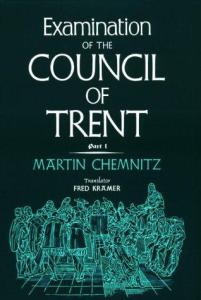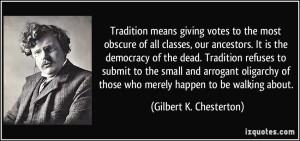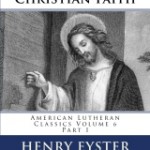
First of all, what is a “hermeneutical democracy”? The popular blogger Rod Dreher recently talked about an article by Abilene Christian University professor Richard Beck. In the article, Beck points out the complexity that lies behind the word “Protestant”, and urges Protestants to own the fact that they “have never agreed on what the Bible says.” Rod Dreher goes on to say:
Beck goes on to make what I think is a solid point: that what Protestant churches and organizations are really doing in these [contemporary] debates [about same-sex marriage] are trying to find out if its membership wants to change, and if so, how much change will it accept. The truth is, says Beck, is that Protestantism is a “hermeneutical democracy,” in which the individual consciences of believers determine what is true and what is false. This, he says, is the “genius of the tradition,” and having to do all this “relational work” is a key part of what it means to be Protestant. The Bible doesn’t speak for itself; it has to be interpreted, and for Protestants, that means that everybody gets a vote.
In other words, Beck is making the case that saying something like we “have a biblical view of sexuality”, for example, is not enough. And this kind of “hermeneutical democracy”- like thinking would seem, on the face of it, to track well with what Stephen Fowl, in his 2008 book “Engaging Scripture”, says: “…theological convictions, ecclesial practices, and communal and social concerns should shape and be shaped by biblical interpretation” and “Biblical interpretation will be the occasion of a complex interaction between the biblical text and the varieties of theological, moral, material, political, and ecclesial concerns that are part of the contexts in which they find themselves.” (p. 60) (I addressed the problems with this kind of statement the fourth footnote in my previous post).
Not only this, but all of this put me in mind of the complexity of another term associated with Protestants: “non-denominational”. In the online theology classes I teach on basic Christianity, I always bring up this term.
What does this mean? I would say that at its best, “non-denominational” is used in order to avoid denominational labels (Lutheran, Presbyterian, Methodist, etc) – all with the good intention of drawing interested persons into environments where Jesus Christ and the Scriptures of what we might call “historic, biblical Christianity” are at the center. It has had some real appeal with some, because there really are things that many who bear the name of Christ have historically agreed on: e.g., that the Bible is God’s word, that the church’s Creeds are basically correct (even if it is not recited in worship), etc.
All this said, in practice the word “non-denominational” has, at least until recently, tended to track not just with some pan-Protestant ethos, but particularly with an American evangelical form of theology that embraces not infant baptism, but believer’s baptism. How many “non-denominational” churches do you know of that are actually willing to baptize infants (and if any do, they certainly do not embrace the idea of baptismal regeneration)?
But what does the term “non-denominational” signify today? I always ask my students this, and it seems they increasingly have no idea. Among those who are willing to take a stab at giving a definition, many give the impression that “non-denominational” no longer means something like “evangelical”, but rather “whatever I think Christianity means”. In short, any group or individual wanting to be identified in some way with the group called “Christianity” – even those who do not assume the Bible is God’s word – can be “non-denominational”.
And for some in this “hermeneutical democracy” called “Christianity”, a key assumption is that the meaning of the Bible is all really rather unclear – and that those “on the right side of history” will end up winning the day by interpreting it as they see fit and necessary (again, see my last post mentioned above). Not so much because this will be decided by some vote, but because, as Beck says, “what you are searching for is a hermeneutical consensus, the degree to which your community can tolerate certain hermeneutical choices.”
How to respond to all of this?
First of all, as I have said in the past, “while we should not think that a sincere agnostic, truly seeking to understand the Bible as a complete work, would come up with the Nicene Creed, what Mark Twain said about the Scriptures is certainly relevant here: ‘It ain’t those parts of the Bible that I can’t understand that bother me, it is the parts that I do understand.’ Certainly, as we all know, there are some interpretations that certain words, whatever their context may be, will simply eliminate from the get go.” Those who are able to carefully explore the Bible can indeed begin to grasp and understand what it is all about.

Second, it should be pretty obvious to all of us that tradition is not a nothing either. In Martin Chemnitz’s great work critiquing the Roman Catholic Council of Trent, what he wrote clearly indicates the Lutherans believed in “Holy Tradition.” (something the 1580 Lutheran Confessions, the Book of Concord, clearly attest to as well) A paper my pastor wrote some years ago nicely breaks down the issue:
“The concept of a contemporaneous existence of the Word of God in a corrupted verbal form, and a pure written form, spawned Chemnitz’s explanation of traditiones in the second locus, De traditionibus. Here he lists the first of eight different types of traditiones as…
- Scripture itself, i.e. the things that Christ and the Apostles preached orally and were later written down. Then follows:
- the faithful transmission of the Scriptures;
- the oral tradition of the Apostles (which by its very nature must agree with the contents of the New Testament canon);
- the proper interpretation of the Scriptures received from the Apostles and “Apostolic men”;
- dogmas that are not set forth in so many words in Scripture but are clearly apparent from a sampling of texts;
- the consensus of true and pure antiquity;
- rites and customs that are edifying and believed to be Apostolic, but cannot be proved from Scripture.
Chemnitz rejects only the eighth kind of tradition: traditions pertaining to faith and morals that cannot be proved with any testimony of Scripture; but which the Council of Trent commanded to be accepted and venerated with the same reverence and devotion as the Scripture.
The important element of this last of the traitiones appears not to be the fact that such traditions of faith and morals not provable from Scripture actually existed, but that their status of equality with Scripture was foisted upon the church by the Council of Trent.” (italics mine) [i]
Now, this does not mean that confessional Lutherans do not need to do any “relational work” Beck says that Protestants must do. It just means that our overall context is – or should be! – much larger than the useful shorthand “Scripture alone” can capture. Again, the existence of things like Creeds and Confessions speak to this reality. Useful shorthand should not become unthinking slogans.

And speaking of such slogans, Beck says “Own your Protestantism… The ultimate authority in Protestantism isn’t the Bible, it’s the individual conscience.” But the problem is this: the idea of a “hemeneutical democracy” is clearly not only a Protestant issue – the progressive wing of the Roman Catholic Church has shown us that in spades in recent months. This kind of thing happens in quarters of Dreher’s own Eastern Orthodox Church as well (see here).
Is the issue really Martin Luther’s purported emphasis on the “individual conscience” – and the related problem “private interpretation”? Or, ultimately, is the issue whether or not the Bible is clear and understandable in its core message? The Ancient church said that it was clear. The Lutheran Confessions and those who adhere to them also assume “yes”. I tend to think that most everyone else – Protestant or not – will fudge on this critical issue in one way or another (see here for more)
FIN
Notes:
[i] P. Strawn, Cyril of Alexandria as a Source for Martin Chemnitz, in Die Patristik in der Bibelexegese des 16. Jahrhunderts, Wolfenbu”ttleler Forschungen, Bd. 85, Hrsg. v. David C. Steinmetz, Wiesbaden 1999, p. 213-14. See more excellent stuff from Strawn here. If you would like to read more of Strawn’s material, I used some of it in a debate with R.C. apologist Dave Armstrong in this series of posts (three parts – here is the last round). Of this debate, Armstrong said to me: “I think you have argued your case well. I commend you, and you have earned my respect, without question (including very much so, your cordiality)…”












